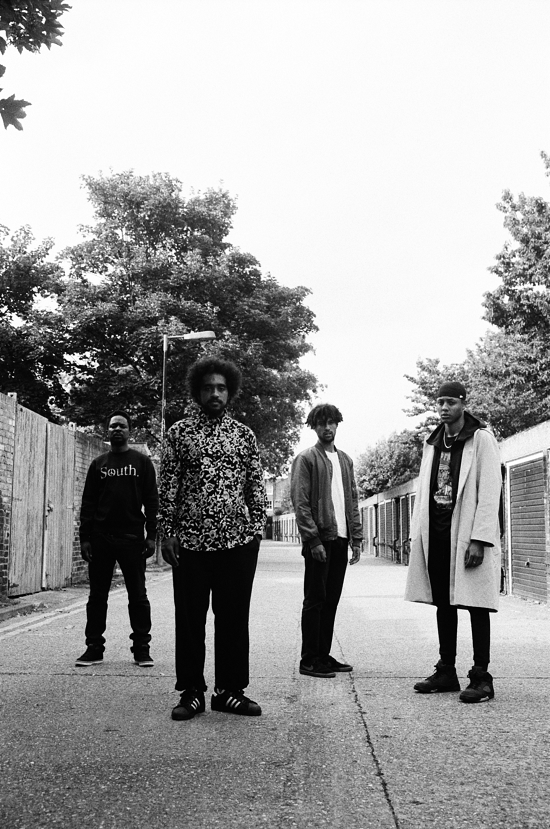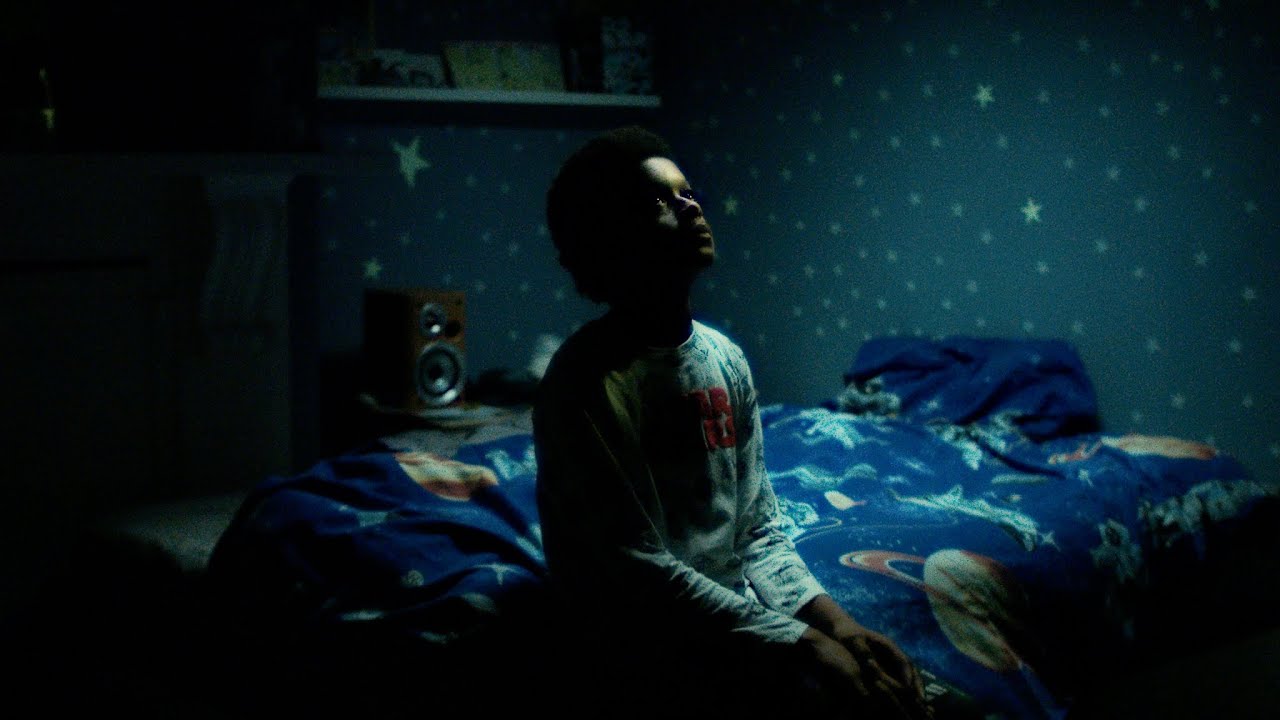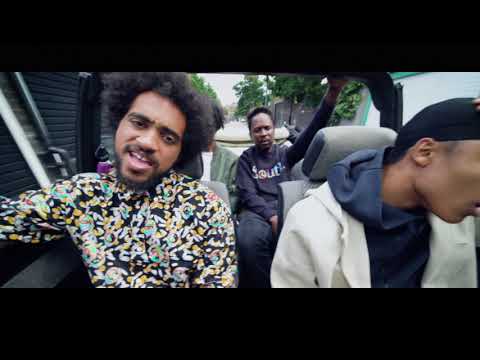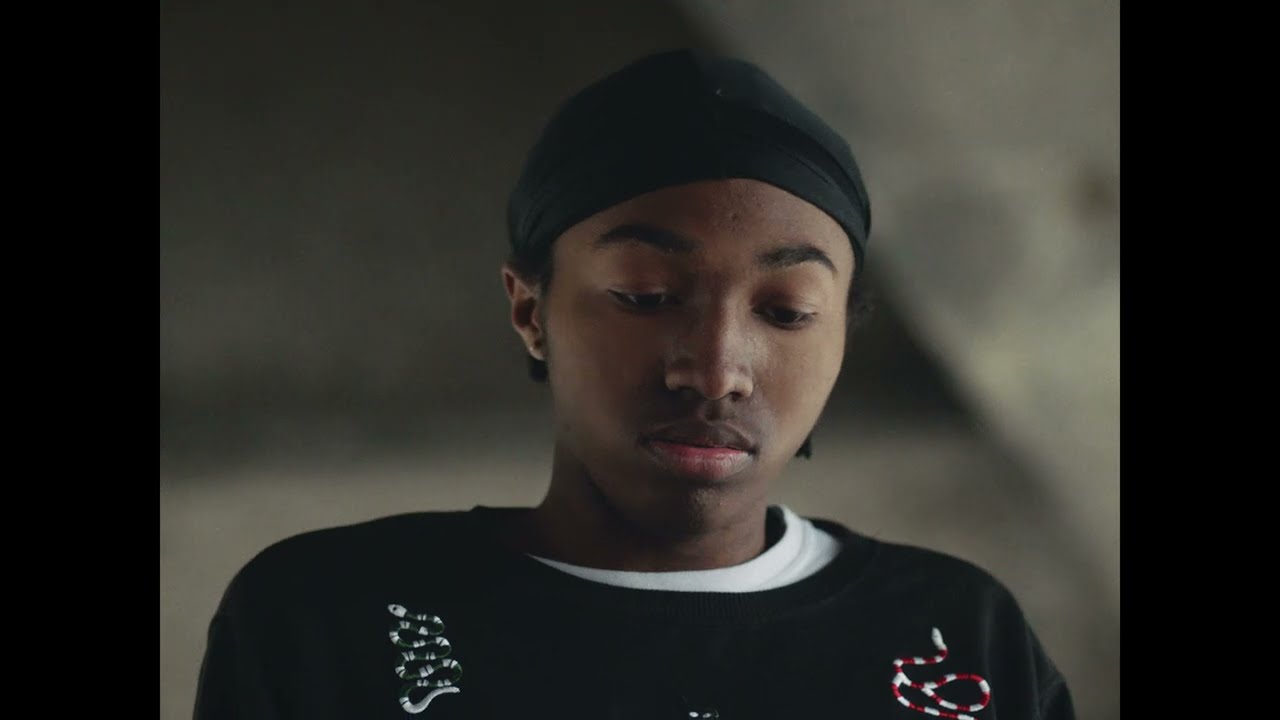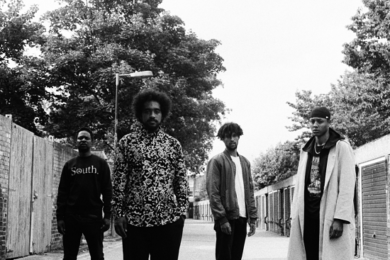Photos by Annie Tobin
I meet Miles Romans-Hopcraft, aka Wu-Lu, in his native Brixton. After some time spent roaming the streets in search of a bar that’s open at midday on a Tuesday, with adequate shelter from the intermittent rain (these are the late-pandemic days of outdoor-only drinking), all that’s available is a former Victorian pub, recently renovated as a ‘modern take on a classic social club,’ as it advertises itself. We spend a couple of hours there, during which time the musician regularly attempts to get the attention of someone he knows who he’s spotted walking past. One of them is his twin brother Ben who plays in Childhood and Insecure Men. The pair grew up around the corner.
It’s easy to paint Romans-Hopcraft as inseparable from his local community, particularly when you consider the kind of music he’s making, songs which engage directly with a neighbourhood going through something of an identity crisis. His breakout single ‘South’ concerns the ceaseless roll of gentrification, an issue in which Brixton is often painted as something of a frontline. “I used to live in South London/ there’s not much of it left,” Romans-Hopcraft drawls over a simmering guitar groove, which then suddenly boils over into a head-shattering screamo chorus. The instrumental first came about as a live improvisation to fill a space while the musician retuned his guitar onstage, atop which he started freestyling “about what I was thinking about. There was always a recurring thing about Brixton and feeling pissed off. I know that eventually I’m not gonna be able to live around here anymore because I can’t afford it, but something needs to be said”.
It was written before the intensification of the Black Lives Matter movement last summer but plans for a video happened to coincide with Brixton’s BLM protests at which he had been asked to perform. The two intersect in the track’s visuals, footage and imagery of Romans-Hopcraft and other protesters interspersed dramatically with footage of their native Brixon streets. “I kind of see it as ‘listen to me’,” he says of the song. “A punch in the face with a kiss afterwards. I’m not very confrontational, I’m the kind of person who will say it politely at first, until the point of like, if I really feel like I’m not being listened to I’ll let off.” He’s sceptical when it comes to the extent the Black Lives Matter movement was received meaningfully by those in power. “A lot of people have made a lot of noise, but it’s about consistency. Black squares didn’t do that much for me.” He’s also realistic about the limitations of a track. “At the end of the day, this narrative is so much deeper and needs so much more attention, detailed infrastructure and change. A tune like ‘South’ may make people think about things, but at the same time we’re still in the same place, really.”
For many years Romans-Hopcraft has been doing youth work through the organisation Raw Material Music and Media, the youth club Alford House and his own community interest company, teaching music production and fostering creativity as a way for those from tough backgrounds to articulate and process their experiences. Partly inspired by the stories he hears from those he’s worked with, and how he can relate them to his own upbringing, the as-yet-untitled album he’s working on as Wu-Lu has taken on a bigger scope than just gentrification. “All the music I’m making is about coming of age,” he says. “There’s lots of running themes. Single parents, growing up too quickly, a lot of it touches on mental health. Not always boys, but a lot of young Black and Brown boys say they’re fine when they properly ain’t. Their normal compared to what’s normal for everyone else is so radically different.”
‘South’ was followed by ‘Times’, a grungier track that turns its focus to the experiences of young people living in the area, “seeing it change drastically,” and growing up too fast. “In the skate community and graffiti community you might see a 13-year-old kid hanging out with a 30 year old to go and paint trains, feeling like they have to stand up with the elders.” His latest, the wrenchingly dark ‘Being Me’ (premiering exclusively with tQ above), delves inwards to “the lower part of all those headspaces. It’s about me, and other people similar to me”.
Growing up, Romans-Hopcraft says he was “on two sides of the coin.” His white father and his Black mother were amicably separated, and although they both started out in council housing, “life choices and opportunities” meant his father, a jazz trumpeter, was able to move on to the property ladder while his mother, a dancer, “stayed where she was. It was two different worlds”. Both had an influence on him artistically. When DJ Shadow’s Endtroducing and the 2001 hip hop DJ documentary Scratch emerged as early inspirations, his mother, who herself worked with the charity Youth Music, nurtured a love of turntablism by supplying him with trance and jungle records brought home from work.
“My dad, being ‘the musician’ out of the two, was always saying to me, ‘Music’s really, really hard you know, so get another skill,’ where my mum was more like, ‘Do whatever you want, be creative,” Romans-Hopcraft says. “She was always told when she was growing up, trying to dance, ‘You ain’t gonna be able to do this’ because she was a Black woman in London. With that she was saying you can fucking do it.’ I guess my dad didn’t have as many people saying to him, ‘You can’t do that.’” He recalls an early trio he formed with his brother and a friend. “We were in the front room of my dad’s house and he came in, he must have been pissed off about something [that happened] earlier in the day, and he was like, ‘Listen guys, music’s really hard,’ and gave us this whole long speech. But then when he left the room my brother turned to me and was like, ‘But we’re gonna do it though. We’re gonna be on [the cover of] Kerrang!’”
As well as turntablism, Kerrang!-backed early-2000’s metal, grunge and pop punk bands like Korn, The Offspring, Limp Bizkit, Blink-182 and Slipknot were key influences growing up, as was the soundtrack to the video game Tony Hawk’s Pro Skater 2 (Papa Roach, Rage Against The Machine, Consumed and more). Skate culture was another key strand – the first shows he saw were local punk bands at Stockwell skate park – as was UK hip hop, introduced to him in a chance mention of Rodney P on a graffiti-focussed episode of Channel 4 reality show Faking It, and grime. Then he discovered Gorillaz, who united a number of different strands. “Through the years I realised why that was such a moment in my life, because it had no genre. It had a bit of dub, a bit garage, a bit of hip hop. It spun me. The animation, the punky stuff and the hip hop and baggy clothes. I was like, ‘Sick! Sick! This is it!’” Later he drew the links between the afro jazz inspired work of his father with the hip hop he was listening to.
All of which is to say that Romans-Hopcraft’s work draws on many streams of influence. His beats-led 2016 album Ginga skitters between different rhythms and the funkier 2019 EP S.U.F.O.S. incorporates the odd blast of noise, but it’s his latest material that forge something truly unique out of that mix. When it appeared in January, ‘South’ wasn’t just unlike anything Romans-Hopcraft had ever put out before, but unlike just about anything else around. “I guess it was trying to wave away any smokescreen. I get typecast a lot as being in the South London jazz scene,” he says. Its screaming bombardment of a chorus “was that moment of me saying, ‘No! OK?’” From the outset, Romans-Hopcraft’s goal as an artist was “to carve my own lane. Rather than just being like, ‘I make this music, I make that music,’ I’m just gonna make Miles music”. It was only as he started trying to recruit musicians for his band that he was confronted with narrower expectations. “For other people it was more one direction, more hip hop or jazz or straight up metal, there was no proper inbetween. But I was like, ‘Yeah, man, I wouldn’t mind just playing with some people who share the same vision musically. It felt very few and far between.” Eventually, he found his like-minded musicians but still occasionally deals with “people saying to me at shows like ‘I didn’t know you had a mostly Black band.’ My bass player put it to me the other day that ‘we’re a mixed race grunge band’. I guess you don’t really see that so much”.
Romans-Hopcraft’s ambition means that any trappings of tradition or genre are secondary concerns at best. “I’m just about trying to keep you on your toes. I’ve got tunes that have a straight up orchestral vibe.” Since he witnessed a Connan Mockasin gig so powerful that he left “feeling different,” more than anything else his aim is to deliver maximum immersion. “I’m trying to make people feel something, good or bad.” Were budget no object, he imagines his work reinterpreted as a Secret Cinema style physical installation.
So too would it be a disservice to paint his new music as just a chronicle of modern Brixton. Its snapshots might be drawn directly from his own experiences and those of the young people he’s worked with, but they speak to something universal. “I’m talking my own truth, but that truth is relatable,” he says. He recalls a friend in Leeds showing him battles of his own to maintain community spaces and make creativity accessible to young people, for example. On ‘South’, guest vocalist Lex Amor applies the record’s themes to her own North London neighbourhood. “I’m sure that all these stories of gentrification and family life are worldwide conversations that are happening in different places on different levels all the time. I feel like we’re all having the same conversation.”

